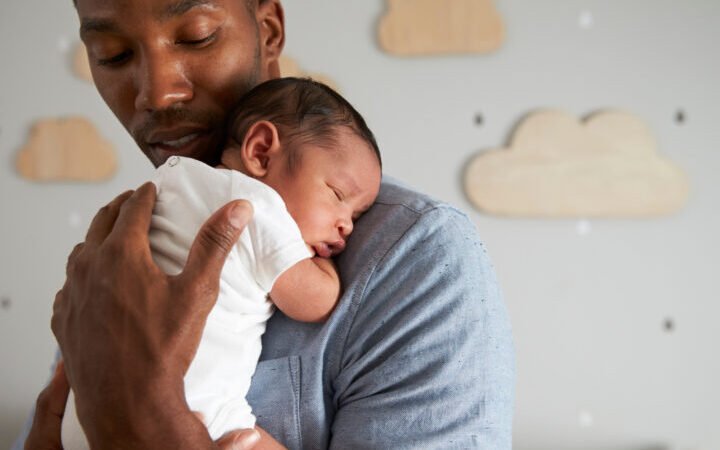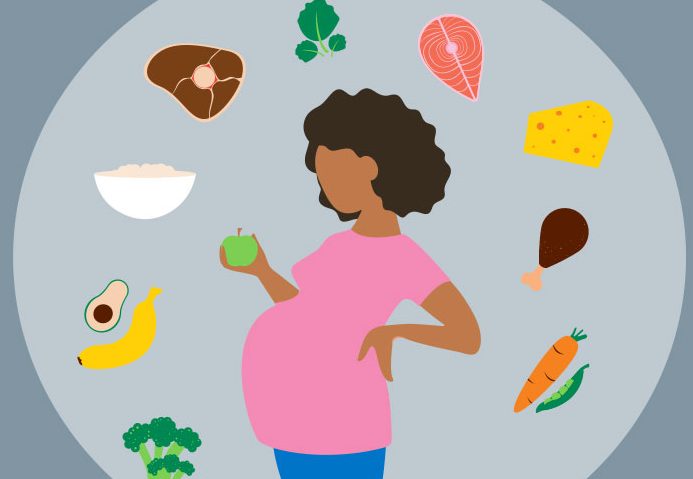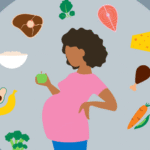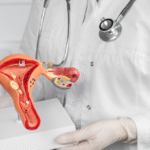Now Reading: Preconception Health – Why It Matters More Than You Think
-
01
Preconception Health – Why It Matters More Than You Think
Preconception Health – Why It Matters More Than You Think

Preconception health is often overlooked. But it plays a vital role in healthy pregnancies.
Understanding its importance can pave the way for a healthier future. Many think about health only during pregnancy. Yet, taking care of your body before conception can have lasting effects. It prepares your body, enhances fertility, and supports a baby’s development.
Moreover, it helps prevent complications. Nutrition, lifestyle, and medical care all play a part. These factors are crucial for both parents. They set the stage for a successful pregnancy. By focusing on preconception health, you can improve your well-being. Plus, you give your child the best start possible. Dive in to discover why preconception health matters more than you think.
Importance Of Preconception Health
When you think about preparing for pregnancy, you might picture prenatal vitamins and regular doctor visits. But did you know that preconception health is equally crucial? It’s about setting the stage for your future child and ensuring your own well-being. Prioritizing this can make a world of difference for you and your baby.
Impact On Future Pregnancy
Taking care of your health before pregnancy can shape how smoothly things go later. Women who focus on preconception health often experience fewer complications during pregnancy. By maintaining a balanced diet and staying active, you boost your chances of a healthy pregnancy.
Imagine a friend who started a fitness routine months before conceiving. Her pregnancy was less stressful, and she had more energy. These small steps can lead to significant outcomes, like reducing the risk of gestational diabetes.
Have you considered how your lifestyle choices today might affect your future baby? It’s worth thinking about.
Long-term Health Benefits
Preconception health isn’t just about pregnancy—it’s about your lifelong health. Women who focus on this often maintain healthier habits after childbirth. This means lower chances of chronic diseases like hypertension.
Picture the benefits of adopting a nutritious diet and regular exercise routine now. You’re not only preparing for a baby but investing in your own future health. These habits can enhance your quality of life, making you more resilient to health challenges.
Could embracing preconception health be the key to a healthier, happier life for you and your family?
Understanding the importance of preconception health can empower you to make informed choices. It’s not just about the nine months of pregnancy; it’s about creating a foundation for a lifetime of wellness.
Key Components Of Preconception Care
Preconception care focuses on essential components like nutrition, lifestyle, and medical history. These factors significantly impact future pregnancy health. Prioritizing these elements ensures better outcomes for both mother and baby.
Preparing for pregnancy involves more than just taking a pregnancy test. It’s about adopting a lifestyle that supports your future baby’s development and your well-being. The key components of preconception care include nutrition, exercise, and overall health management. These elements ensure that you are in the best possible shape before conceiving. Let’s dive into the importance of nutrition and exercise in your preconception journey.
Nutrition And Diet
Your diet plays a crucial role in preparing your body for pregnancy. Eating a balanced diet rich in vitamins and minerals helps build a strong foundation for your baby’s growth.
Are you getting enough folic acid? It’s essential for preventing birth defects. Consider adding leafy greens, beans, and fortified cereals to your meals.
Protein intake is another important factor. Include sources like lean meats, dairy, and nuts. They support the development of your baby’s tissues and organs.
Hydration is often overlooked but vital. Ensure you drink plenty of water to keep your body functioning optimally. Dehydration can lead to complications, so keep a bottle handy!
Exercise And Fitness
Staying active boosts your energy levels and enhances your mood, making it easier to deal with pre-pregnancy stress.
How often do you exercise? Aim for at least 30 minutes of moderate activity most days of the week. Walking, swimming, and yoga are excellent choices.
Strength training shouldn’t be ignored. Building muscle can help manage weight gain during pregnancy. Simple exercises like squats and lunges are effective.
Flexibility and balance exercises prepare your body for the physical changes of pregnancy. Try incorporating stretches or a short Pilates session into your routine.
Achieving a healthy balance of nutrition and exercise before conceiving is more than just a checklist. It’s about creating an environment where your future baby can thrive. What steps will you take today to ensure you’re ready for the journey ahead?
Mental Health Considerations
Mental health plays a crucial role in preconception health. It affects both physical health and emotional well-being. Preparing for a baby requires more than just physical readiness. A sound mind ensures a nurturing environment for the baby. Addressing mental health early can ease the transition into parenthood.
Stress Management Techniques
Stress can impact fertility and overall health. Simple techniques help manage stress effectively. Breathing exercises calm the mind and body. Meditation can improve focus and reduce anxiety. Regular physical activity releases endorphins. These chemicals improve mood and reduce stress. Setting aside time for hobbies can also be beneficial.
Emotional Support Systems
Having a strong emotional support system is vital. Family and friends can provide encouragement and understanding. Joining support groups connects you with others facing similar situations. A therapist can offer professional guidance and coping strategies. Open communication with your partner strengthens your relationship. This shared understanding creates a supportive environment for your future child.
Environmental Factors
Environmental factors greatly impact preconception health. Factors like air quality and exposure to toxins can affect fertility and pregnancy outcomes. Understanding these influences helps in making informed health decisions before conception.
Preconception health is often overlooked but plays a crucial role in preparing your body for pregnancy. Environmental factors can significantly impact your health and the health of your future baby. From the air you breathe to the products you use, these elements shape your preconception journey.
Toxic Exposure Risks
Imagine painting your nursery only to find the paint contains harmful chemicals. Toxic exposure during preconception can affect fertility and pregnancy outcomes. Everyday items like cleaning products, cosmetics, and even furniture can emit toxins.
Consider your daily routine. Are there products you use that contain harmful substances? Switch to natural alternatives to minimize your exposure. Research shows even small changes can significantly reduce risks.
Your surroundings matter. Are you living near industrial areas or heavy traffic? Air quality plays a vital role in your overall health. Consider air purifiers or indoor plants to improve the air you breathe.
Creating A Healthy Home Environment
Think about your home. Is it as safe as it can be for welcoming a new life? Creating a healthy environment starts with simple adjustments. Use non-toxic cleaning supplies to ensure your living space is free from harmful chemicals.
Consider the materials in your home. Opt for furniture made from natural materials. This reduces the risk of exposure to volatile organic compounds, which can linger in the air for years.
What about electromagnetic fields? These invisible forces from electronics can affect your wellbeing. Limit exposure by keeping devices away from sleeping areas. This small change can improve your sleep quality and overall health.
Your home is your sanctuary. Make it a place that nurtures your preconception health. Personalize it with elements that bring you joy and relaxation. After all, a healthy environment starts with a happy you.
Healthcare And Medical Check-ups
Understanding preconception health requires a focus on healthcare and medical check-ups. Before planning a pregnancy, a woman’s health plays a crucial role. Regular check-ups ensure optimal health for both the mother and future child. These visits are vital for detecting potential health issues early. They provide a roadmap for a healthier pregnancy journey. Let’s explore essential screenings and vaccines that make these check-ups indispensable.
Essential Screenings
Regular screenings help identify health issues before pregnancy. Blood tests check for conditions like anemia and infections. Genetic screenings assess risks for inherited diseases. Thyroid function tests monitor hormone levels. These screenings help in planning safer pregnancies. Early detection leads to timely treatments.
Vaccinations And Immunizations
Vaccinations protect mothers and babies from infectious diseases. A flu vaccine is essential during pregnancy. It reduces risks of flu-related complications. Tetanus, diphtheria, and whooping cough vaccines are important too. They safeguard the newborn from serious infections. Check-ups ensure you are up-to-date on these vaccinations.
Lifestyle Choices Impact
Healthy lifestyle choices before pregnancy are crucial for both parents. Good habits improve fertility and baby health. Small changes make a big difference. Eating well, exercising, and reducing stress contribute to a healthier future.
Understanding the importance of preconception health can be a game-changer for you and your future family. The choices you make today can set the stage for a healthier pregnancy and a thriving baby. Lifestyle choices, in particular, have a profound impact on your preconception health. Let’s dive into how specific habits can make a difference.
Smoking And Alcohol
Lighting up a cigarette might seem like a stress reliever, but it can severely impact your fertility. Not only does smoking reduce your chances of conceiving, but it also increases the risk of complications during pregnancy. Consider swapping out that smoke break for a short walk or a few minutes of deep breathing.
Alcohol consumption is another factor you might overlook. Even moderate drinking can lower fertility rates. Have you thought about trying alcohol-free alternatives for your favorite beverages? They are not just a health-conscious choice; they also help in setting a positive pattern for your future.
Sleep And Rest
Quality sleep is often undervalued but plays a crucial role in your reproductive health. Are you getting enough restful sleep each night? Aim for 7-9 hours of sleep to support your body’s natural rhythms.
Rest is not just about sleep; it’s about taking time to recharge mentally and physically. Have you tried incorporating short breaks into your day? Even a 5-minute pause can enhance your well-being and prepare your body for the demands of pregnancy.
Every lifestyle choice you make today can influence your chances of a smooth journey to parenthood. What small change can you make today for a healthier tomorrow? Your future self will thank you.
Partner’s Role In Preconception Health
When thinking about preconception health, many focus solely on the woman’s role. However, the partner plays a crucial part in this journey too. Both partners can make a significant impact on the health of their future child by working together.
Shared Responsibility
Preconception health isn’t just about one person. It involves both partners actively participating and supporting each other. Your combined efforts can pave the way for a healthier pregnancy and baby.
Consider this: a couple I know decided to embark on a healthier lifestyle before trying for a baby. They both stopped smoking and adopted a balanced diet. Their shared commitment not only improved their health but strengthened their relationship.
Are you and your partner ready to share this responsibility? It’s not just about supporting each other but also about setting a foundation for your future family.
Supporting Healthy Habits
Healthy habits can significantly influence fertility and pregnancy outcomes. As a partner, you can encourage and participate in these habits. Join your partner in regular exercise, meal prepping, or attending doctor’s appointments.
Imagine the impact of a partner who joins you on morning jogs or helps cook nutritious meals. Small actions like these can make a big difference. You’re not only boosting your health but also showing your partner they’re not alone in this.
What healthy habits can you start together today? The journey of preconception health can be a bonding experience, setting the stage for a supportive and healthy environment for your future family.
Common Misconceptions
Preconception health is often misunderstood. Many believe it’s only for women. Or that it only matters during pregnancy. This section will address common misconceptions. Let’s explore myths about timing and gender-related misunderstandings.
Timing Myths
Many think preconception health starts with pregnancy. This is not true. Health before conception impacts future pregnancy. It shapes the baby’s development. Good health should begin months before conception. Early preparation can prevent complications. This includes diet, exercise, and mental health.
Gender-related Misunderstandings
Preconception care is not only for women. Men’s health also matters. Men’s health affects sperm quality. It can influence fertility and pregnancy health. Healthy lifestyle choices are crucial. Both partners should focus on nutrition and fitness. Together, they can improve reproductive health. Shared responsibility leads to better outcomes.
Frequently Asked Questions
Why Is Preconception Health So Important?
Preconception health enhances fertility, reduces pregnancy risks, and supports baby’s healthy development. It improves overall well-being and prepares the body for pregnancy. Early health measures can prevent complications and ensure a smoother pregnancy journey.
How Does Mental Health Affect Preconception?
Mental health impacts preconception by influencing stress levels, emotional well-being, and hormonal balance. Poor mental health can lead to difficulties in conceiving. Addressing mental health issues early can enhance fertility and pregnancy outcomes. Prioritizing mental wellness supports a healthier preconception journey for prospective parents.
What Are Important Aspects To Consider Before Conception For A Healthy Pregnancy?
Maintain a balanced diet, exercise regularly, and manage stress. Consult a doctor for pre-conception health checks. Avoid alcohol, smoking, and drugs. Ensure vaccinations are up-to-date and start taking prenatal vitamins like folic acid.
Why Is It Important To Maintain A Healthy Lifestyle Before Pregnancy?
Maintaining a healthy lifestyle before pregnancy boosts fertility, enhances maternal health, and reduces pregnancy complications. It ensures optimal fetal development and prepares the body for the demands of pregnancy. Healthy habits, like balanced nutrition and regular exercise, contribute to a smoother pregnancy journey and a healthier baby.
Conclusion
Preconception health truly impacts future well-being. It’s about more than just pregnancy. It builds a strong foundation for a healthy life. Small changes today can lead to big benefits later. Eating well, exercising, and reducing stress are key steps. These choices improve your health and potential baby’s health.
Planning for a healthy future starts now. It’s worth the effort for long-term happiness. Take control of your health journey. Make informed choices. Feel empowered and confident about your health decisions. Prioritize preconception health and embrace a brighter future. Your future self will thank you.




















